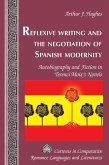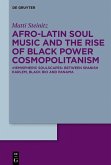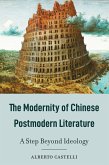Cosmopolitanism in the Indian English Novel argues that select novels by Indian writers in English largely present a kind of micro-cosmopolitanism that preserves nation as a primary site for social and cultural formation while opening it up to critique. During colonial times, local cultural expression wrestled with the global as represented by the systems of empire. The ideal subject or literary work was one that could happily inhabit both ends of the center-periphery in a kind of cosmopolitan space determined by imperial metropolitan and local elite cultures. As colonies liberated themselves, new national formations had to negotiate a mix of local identity, residual colonial traits, and new forces of global power. New and more complex cosmopolitan identities had to be discovered, and writers and texts reflecting these became correspondingly more problematic to assess, as old centralisms gave way to new networks of cultural control. This book contends that novels written in the context of the postcolonial cultural politics after the successful attainment of national independence question how a nation is to be made while recognizing its relation to globalization. The strong waves of globalization enforce sociological, political, and economic values in developing countries that may not be readily acceptable in those societies.
Cosmopolitanism in the Indian English Novel focuses on three novelists in particular: Arundhati Roy, Kiran Desai, and Aravind Adiga, all of whom have received the prestigious Man Booker Prize for their work. Despite the varied but broadly elite cosmopolitan positions of these writers, they all depict characters working toward a cosmopolitanism from the grassroots, rather than through a top-down practice. Furthermore, these writers and their works, to varying degrees, turn a suspicious eye to the effects (cultural, economic, or otherwise) of globalization as a phenomenon that can prevent possibilities for more fluid forms of belonging and border-crossing. Cosmopolitanism in the Indian English Novel should appeal to researchers in cultural studies interested in Indian English fiction and/or the form and function of cosmopolitanism in a rapidly globalizing postcolonial world.
Cosmopolitanism in the Indian English Novel focuses on three novelists in particular: Arundhati Roy, Kiran Desai, and Aravind Adiga, all of whom have received the prestigious Man Booker Prize for their work. Despite the varied but broadly elite cosmopolitan positions of these writers, they all depict characters working toward a cosmopolitanism from the grassroots, rather than through a top-down practice. Furthermore, these writers and their works, to varying degrees, turn a suspicious eye to the effects (cultural, economic, or otherwise) of globalization as a phenomenon that can prevent possibilities for more fluid forms of belonging and border-crossing. Cosmopolitanism in the Indian English Novel should appeal to researchers in cultural studies interested in Indian English fiction and/or the form and function of cosmopolitanism in a rapidly globalizing postcolonial world.
Dieser Download kann aus rechtlichen Gründen nur mit Rechnungsadresse in A, D ausgeliefert werden.









